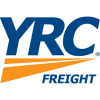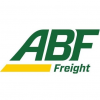NZ Post tracking packages and shipments
Keep track of New Zealand Post parcels and shipments with our free service! All you need to do to track your parcel, is to enter the tracking number, and then the service will keep track of your parcel’s location in real time.
How do I track my New Zealand Post parcel with 100Parcels.com?
- Find out the tracking number of your parcel;
- Enter the tracking number of your parcel in the field at the top of the page;
- Wait until the service checks the parcel data, it will not take long;
- View the search results and share them with your friends via social networking;
- If you enter your email address, we can notify you automatically of changes to the status of your parcel.
New Zealand Post - Tracking number format
- A# *** *** *** NZ
- B# *** *** *** NZ
- C# *** *** *** NZ
- D# *** *** *** NZ
- E# *** *** *** NZ
- F# *** *** *** NZ
- H# *** *** *** NZ
- I# *** *** *** NZ
- J# *** *** *** NZ
- L# *** *** *** NZ
- M# *** *** *** NZ
- O# *** *** *** NZ
- R# *** *** *** NZ
- S# *** *** *** NZ
- T# *** *** *** NZ
- U# *** *** *** NZ
- V# *** *** *** NZ
- X# *** *** *** NZ
- 00194000 *** *** *** ***
- 91094210 *** *** *** ***
- 92094210 *** *** *** ***
- LPKEN000 *** *** *** ***
- *** *** *** *** *** *** *** *** *** *** *** ###0**##
# - letter; * - digit; ! - letter or digit
Where does New Zealand can Post deliver?
New Zealand Post delivers to most of the places in New Zealand and packages are delivered seven days a week. The delivery speed depends on where you live but usually, it can take up to three working days (Monday through Friday) for an item going from Wellington City, Upper Hutt, or Petone. Most deliveries go out during normal business hours so if you place your order before noon then there is a chance that NZ Post will be able to get your parcel within 24 hours!
In the case of rural addresses, the courier might need extra time due to the lack of street lights and narrow roads which could make him arrive at the destination late sometimes. For example, post office box addresses only receive parcels once per day whereas home addresses may have daily visits by NZ Post staff members therefore in some cases can place a request for re-delivery but in most cases, it is not possible.
How much is NZ Post tracking?
Tracking is available for all domestic and international services. You will only be charged tracking fees when you request a shipping label from NZ Post to send the packages. All orders are automatically sent with tracking numbers, but these can also be requested at any time on your order history page or via email.
How long does NZ Post take to deliver?
Generally speaking, your package should arrive within one to four days. However, these are just estimates and if you don't receive a shipment in that timeframe from NZ Post then it is very likely something was wrong with the processing of your mail item or the delivery itself. If this happens, you have to get in touch directly with New Zealand's postal carrier for assistance by phone or email.
About New Zealand Post
New Zealand Post (Māori: Tukurau Aotearoa) is a state-owned enterprise accountable for supplying postal service in New Zealand.
The New Zealand Post Office, a government firm, offered postal, banking, and telecommunications services in New Zealand till 1987. By the 1980s, however, economic difficulties made the federal government reevaluate how it delivered postal services. For example, in 1987-1988, the postal department lost NZ$ 50 million. In 1985, the Labour Party federal government under Prime Minister David Lange launched a review, led by New Zealand Motor Corporation CEO Roy Mason and KPMG New Zealand Chairman Michael Morris, to find options to the Post Office's problems. In its last report, the team advised transforming the New Zealand Post Office into three state-owned enterprises. The government in 1986 chose to follow the Mason-Morris review's recommendations and gone through parliament the State-Owned Enterprises Act, which corporatized numerous government companies into state-owned enterprises. The Post Office's corporatization was then completed with the 1987 passage of the Postal Services Act. The two acts separated the New Zealand Post Office into three corporations: the postal service firm New Zealand Post Limited, the savings bank Post Office Bank Limited, later on rebranded as PostBank, and the telecommunications business Telecom New Zealand Limited. Today, just New Zealand Post remains a state-owned business, as PostBank and Telecom were privatized in 1989 and 1990, respectively.
In its very first year of operation, New Zealand Post turned the losses of previous years into a NZ$ 72 million profit.
A year after the 1987 Post Office Act, the Lange Government declared its strategy to completely privatize the post. To prepare for privatization, it chose to gradually decrease NZ Post's monopoly. New Zealand Post had a monopoly for mail up to 500 grams and NZ$ 1.75 worth when it was corporatized in 1987. This was first lowered to $1.35, then $1, and finally 80 cents. The government likewise let NZ Post downsize by closing a third of its places. In 1991-1992, another review came out in support of the government's privatization plan. By the end of 1993, the government abandoned its strategy since of public opposition.
New Zealand Post started its life with 1,244 post workplaces, later on rebranded as PostShops, of which 906 were full post offices and 338 were postal firms. After government aids ended in February 1988, 600 post workplaces or bank branches were scaled down or closed.
There was a reduction in the "real" cost of postage, with a nominal drop of the postage rate from 45 cents to 40 cents in 1996, and remediation of the 45 cent rate in 2004. Given that then the expense has actually increased to 50 cents in 2007, to 60 cents in 2010 and to 70 cents in 2012. On 1 July 2016 postage for basic letters will increase by 20 cents to $1.00 and Fastpost by 40 cents to $1.80.
The Lange government's Postal Services Act 1987 minimized the monopoly of New Zealand Post to a limitation of $1.75 and 500 grams. It was gradually lowered to 80 cents in December 1991 until the 1998 legislation worked.
The Postal Services Act 1998, passed by a National-New Zealand First union federal government, rescinded the 1987 Act. The new law attends to anyone to end up being a registered postal operator by using to the Ministry of Economic Development (now Ministry of Business, Innovation and Employment). Registration as a postal operator is compulsory for letters with postage less than 80 cents. In spite of the Act, government guideline of the business still requires it to maintain certain minimum service levels, such as frequency of delivery.
New Zealand Post's unique right to be the 'sole operator' under the Act for the purposes of the Universal Postal Union (UPU) expired on 1 April 2003. For practical functions, this meant another postal operator could in theory provide stamps determined simply as 'New Zealand' with UPU subscription. At around the same time, New Zealand Post embraced a fern-shaped determining mark on its postage stamps, to be used on the bulk of its future concerns.
Since 1998 New Zealand Post has actually been legally required to provide six days a week, but in 2013 the business laid out a plan to reduce this to 3, in the wake of falling mail volumes. Prime Minister John Key backed the concept, stating individuals "genuinely understand that the world is changing".
New Zealand Post is lawfully bound to preserve a specific service level under a deed of understanding it signed with the New Zealand government following the post's corporatization in 1987. According to the arrangement, last modified in 2013, New Zealand Post has to run at least 880 service points where basic postal services are offered, and within this network 240 so-called "Personal Assistance Service Points," where extra postal services, such as priority or parcel services, are readily available.
In 1989 New Zealand Post developed CourierPost, an across the country courier company designed to secure the company's parcel business from the personal competition. By 1998 CourierPost had become the number one player in the express carrier market.
In 1999 New Zealand Post released a 50:50 joint operation with Blue Star. The brand-new brand name - Books and More - combined bookshop operations with the more traditional PostShop services. After getting 100% of the business in 2004 (by this phase the other 50% had been owned by WH Smith, owner of Whitcoulls bookshops) the whole operation was eventually sold to Paper Plus in 2005 and by 2006 all had actually been re-branded as Take Note.
In 2002 New Zealand Post, as part of government policy, opened the bank Kiwibank Limited in the majority of its PostShop and Books and More (now Take Note) branches. Kiwibank is wholly owned by New Zealand Post through subsidiaries.
In 2002 NZ Post bought The ECN Group which is now New Zealand Post's corporate venturing arm. Its purpose is to develop and market innovations and services that might change or improve New Zealand Post's traditional services. The ECN Group focuses on B2B messaging, company procedure management and systems combination, with a presence in New Zealand, Australia and Asia.
In 2004 New Zealand Post revealed the development of Express Couriers Ltd (ECL), a 50:50 joint venture with carrier company DHL. In 2012 New Zealand Post purchased DHL's holdings in these two business.
New Zealand Post also owned 35% of IT firm Datacom Group until December 2012.
New Zealand Post also runs the Electoral Enrolment Centre as a service unit under contract to the Ministry of Justice. Its function is to compile and keep all electoral rolls for parliamentary and local government elections.
On 6 July 2010, New Zealand Post registered a 100 percent stake in Localist Limited, a local directory and social media website focusing at first on the Auckland region. This holding was offered in 2014 in a management buyout led by the then CEO, Christine Domecq.
By end of June 2011, New Zealand Post will have 910 postal outlets and 280 PostShop Kiwibank shops after shuts and downgrades more than a lots branches across the country. To compensate, the company was also planning to install new self-service kiosks comparable to ATMs for managing letters, bill payments and parcels.
Among the ways New Zealand Post is trying to offset lost profits due to less people corresponding is partnering with other business. The Post on 3 April 2017 revealed that it will deal with quick food dining establishment chain KFC to have postal motorists deliver KFC's food to consumers. The partnership will be piloted in the northern city of Tauranga, then broadened to more areas across New Zealand.
New Zealand Post - Parcel tracking statuses
| Your parcel has completed overseas clearance processing, and is ready for ongoing transit. |
| The sender has allocated a tracking number to your parcel. |
| Transport delay |
| Your item has arrived at its country of destination |
| Ready for courier. Your parcel is at your local depot and is waiting for your local courier driver. |
| Delivery Complete. Your item has been successfully delivered |
| Your parcel is being checked at the New Zealand border by the Ministry for Primary Industries (MPI), before it can proceed. |
| International departure |
| NZ Biosecurity (MPI) assessment. Your parcel is being checked at the border by a New Zealand Government agency before it can be delivered. Ministry for Primary Industries |
| Your parcel is ready to collect from your chosen collection point. Please collect it within the next 10 days. |
| Delivery was attempted but was not able to be completed |
| Delivered |
| Your item has arrived at the outbound mail centre and is being prepared for sending overseas |
| Your parcel is being checked at the border by a New Zealand Government agency before it can be delivered. Ministry for Primary Industries |
| Processed at outbound depot. Your item has arrived at an overseas depot and is being prepared for sending to New Zealand |
| Handover to airline. Your parcel is with the airline and is pending flight departure from the country of origin |
| Processed at outbound depot |
| Your parcel has been collected from the sender\'s location by your local courier driver based at POST Sites CHCH Canterbury. It\'s on its way to our depot for processing. |
| Delivery was attempted but was not able to be completed. A card to call was left |
| Ready for collection |
| Picked up/Collected. Your item has been collected by the overseas postal service and is en route to their depot |
| Your item has been successfully delivered |
| Handed over for delivery |
| Processed at outbound depot. Your item has arrived at the outbound mail centre and is being prepared for sending overseas |
| In Transit |
| Redirection requested |
| Air transport planning is underway for the item |
| Your parcel is being checked at the New Zealand border by the New Zealand Customs Service, before it can proceed. |
| In transit with airline. Your item is being transported by the airline to its overseas destination |
| Your item is currently being held for clearance |
| Processed at parcel depot |
| With border agency |
| International arrival |
| A tracking label has been created but your item isn\'t with us yet |
| Ready for courier |
| Collected from sender |
| With courier for delivery |
| Your item is on its way to a delivery depot |
| Your item has arrived in New Zealand |
| Your item has been delivered |
| At local/regional depot |
| Arrival at outbound depot |
| Arrival at sort depot |
| Held for clearance |
| Item on way to collection point. Item is on its way to a box lobby or other collection location. Please continue tracking the item until it’s available for collection |
| Your parcel is at your local depot and is waiting for your local courier driver. |
| Airline handling processing |
| Your parcel has been collected from the sender\'s location by your local courier driver based at POST Sites AKL INTERNAL. It\'s on its way to our depot for processing. |
| NZ Biosecurity (MPI) assessment |
| Delivery Complete |
| We\'re currently processing your parcel. |
| With courier for delivery. Your item is with our courier for delivery. It should be with you today |
| Processed at parcel depot. Your item has been received at a parcel depot and is being sorted for transport overseas. Due to the nature of international air transport currently this is taking longer than expected. Please be assured that your parcel will be sent on international transport as soon as capacity is available. |
| Your parcel is being transported by the airline to the destination country |
| Processing at depot |
| Delivery was attempted but was not able to be completed. Addressee not available at time of delivery. Will attempt delivery on next working day |
| Processing at international depot. The item is being held at the international gateway for further processing prior to delivery. The recipient may be contacted to facilitate delivery arrangements if required |
| Delivered. Your parcel has been delivered by your local courier driver based at POST Sites Wgtn INTERNAL and signed for by \"Po X6995\". |
| Your item has been successfully delivered and was signed for by \"Olga Levien\" |
| Your item will be sorted for transport to a delivery office by the destination country operator. This is the last tracking event supported for your item as part of our semi-tracked product. |
| Collected from sender. Your parcel has been collected from the sender\'s location by your local courier driver based at POST Sites Man/Wanganui. It\'s on its way to our depot for processing. |
| Arrival at sorting centre |
| Released for delivery. Your item has been released for delivery |
| Your item is with our courier for delivery. It should be with you today |
| Arrival at sort depot |
| Your parcel has been collected from the sender\'s location by your local courier driver based at POST Sites Man/Wanganui. It\'s on its way to our depot for processing. |
| Your item has been successfully delivered and was signed for by \"Krill S\" |
| Handed over |
| Your item has been successfully delivered and was signed for by \"Milana Kornienko\" |
| Processing at international depot. The item is being held at the international gateway for further processing prior to delivery. The recipient may be contacted to facilitate delivery arrangements if required Item damage - item not delivered. Scheduled for further delivery attempt today |
| Air Waybill produced |
| International departure. Departure from country of origin. Your item is in transit to New Zealand |
| Handover to airline |
| Held for clearance. Your item is currently being held for clearance |
| Your parcel has completed its international flight and will soon be processed for its arrival into the destination country |
| Export inspection |
| Your item has been successfully delivered and was signed for by \"DCP025 ATL\" |
| Your item has arrived at a depot for sorting |
| Your item has been successfully delivered and was signed for by \"Pazniak Natallia\" |
| In transit to local depot. Your item has left our International Mail Centre in Auckland and is on its way to a local/regional delivery depot |
| Processing at international depot |
| Handover for arrival processing. Your parcel has completed its international flight and will soon be processed for its arrival into the destination country |
| Released for delivery |
| Your item has left our International Mail Centre in Auckland and is on its way to a local/regional delivery depot |
| In transit to local depot. Your item is in transit to a local delivery depot |
| Departed Facility |
| Picked up/Collected. Your item has been collected and is in transit to the outbound mail centre |
| Your item has been delivered and was signed for by \"J Miller\" |
| Your item has been successfully delivered and was signed for by \"Shayne Wallace\" |
| Your item was handed over for delivery |
| The item has departed from a parcel facility and is undergoing transport. |
| Item is on its way to a box lobby or other collection location. Please continue tracking the item until it’s available for collection |
| Picked up/Collected |
| Ready to send |
| Processing at depot. We\'re currently processing your parcel. |
| Picked up |
| Item on way to collection point |
| Authority to Leave Parcel. We have received the authority to leave your parcel without a signature. |
| Flight arrival |
| Flight arrival. Your parcel has almost completed the current stage of its international flight. Please continue tracking your parcel for the next stage of its journey. |
















































